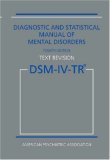
Dissociative identity disorder (previously known as multiple personality disorder) is thought to be an effect of severe trauma during early childhood, usually extreme, repetitive physical, sexual, or emotional abuse. Other types of dissociative disorders defined in the DSM-5, the main psychiatry manual used to classify mental illnesses, include dissociative amnesia (with dissociative fugue now being regarded as a subtype of dissociative amnesia, rather than its own diagnosis), and depersonalization/derealization disorder.
What Is Dissociative Identity Disorder
Most of us have experienced mild dissociation, which is like daydreaming or getting lost in the moment while working on a project. However, dissociative identity disorder is a severe form of dissociation, a mental process which produces a lack of connection in a person's thoughts, memories, feelings, actions, or sense of identity. Dissociative identity disorder is thought to stem from trauma experienced by the person with the disorder. The dissociative aspect is thought to be a coping mechanism -- the person literally dissociates himself from a situation or experience that's too violent, traumatic, or painful to assimilate with his conscious self.
Is Dissociative Identity Disorder Real
You may wonder if dissociative identity disorder is real. After all, understanding the development of multiple personalities is difficult, even for highly trained experts. The diagnosis itself remains controversial among mental health professionals, with some experts believing that it is really an offshoot phenomenon of another psychiatric problem, such as borderline personality disorder, or the product of profound difficulties in coping abilities or stresses related to how people form trusting emotional relationships with others.
What Are the Symptoms of Dissociative Identity Disorder
Dissociative identity disorder is characterized by the presence of two or more distinct or split identities or personality states that continually have power over the person's behavior. With dissociative identity disorder, there's also an inability to recall key personal information that is too far-reaching to be explained as mere forgetfulness. With dissociative identity disorder, there are also highly distinct memory variations, which fluctuate with the person's split personality.
The alters or different identities have their own age, sex, or race. Each has his or her own postures, gestures, and distinct way of talking. Sometimes the alters are imaginary people; sometimes they are animals. As each personality reveals itself and controls the individuals' behavior and thoughts, it's called switching. Switching can take seconds to minutes to days. When under hypnosis, the person's different alters or identities may be very responsive to the therapist's requests.
Other symptoms of dissociative identity disorder may include
Headache, amnesia, time loss, trances, and out of body experiences. Some people with dissociative disorders have a tendency toward self-persecution, self-sabotage, and even violence (both self-inflicted and outwardly directed). As an example, someone with dissociative identity disorder may find themselves doing things they wouldn't normally do, such as speeding, reckless driving, or stealing money from their employer or friend, yet they feel they are being compelled to do it. Some describe this feeling as being a passenger in their body rather than the driver. In other words, they truly believe they have no choice.
What's the Difference Between Dissociative Identity Disorder and Schizophrenia
Schizophrenia and dissociative identity disorder are often confused, but they are very different.
Schizophrenia is a severe mental illness involving chronic (or recurrent) psychosis, characterized mainly by hearing or seeing things that aren't real (hallucinations) and thinking or believing things with no basis in reality (delusions). Contrary to popular misconceptions, people with schizophrenia do not have multiple personalities. Delusions are the most common psychotic symptom in schizophrenia; hallucinations, particularly hearing voices, are apparent in about half of people with the illness.
Suicide is a risk with both schizophrenia and dissociative identity disorder, although patients with multiple personalities have a history of suicide attempts more often than other psychiatric patients.
How Does Dissociation Change the Way a Person Experiences Life
There are several main ways in which the psychological processes of dissociative identity disorder change the way a person experiences living, including the following:
Depersonalization. This is a sense of being detached from one's body and is often referred to as an out-of-body experience.
Derealization: This is the feeling that the world is not real or looking foggy or far away.
Amnesia. This is the failure to recall significant personal information that is so extensive it cannot be blamed on ordinary forgetfulness. There can also be micro-amnesias where the discussion engaged in is not remembered, or the content of a meaningful conversation is forgotten from one second to the next.
Identity confusion or identity alteration. Both of these involve a sense of confusion about who a person is. An example of identity confusion is when a person has trouble defining the things that interest them in life, or their political or religious or social viewpoints, or their sexual orientation, or their professional ambitions. In addition to these apparent alterations, the person may experience distortions in time, place, and situation.
It is now acknowledged that these dissociated states are not fully mature personalities, but rather they represent a disjointed sense of identity. With the amnesia typically associated with dissociative identity disorder, different identity states remember different aspects of autobiographical information. There is usually a host personality within the individual, who identifies with the person's real name. Ironically, the host personality is usually unaware of the presence of other personalities.
What Roles Do the Different Personalities Play
|



